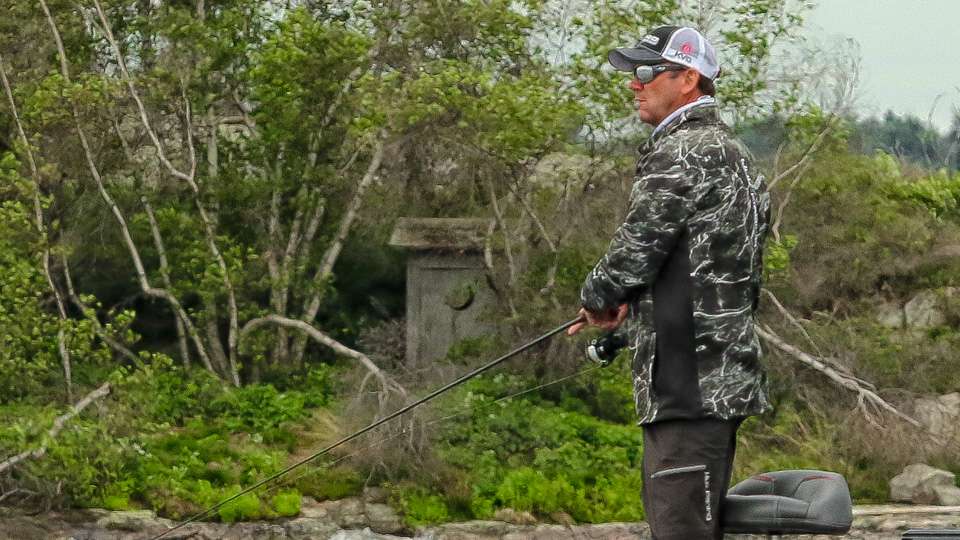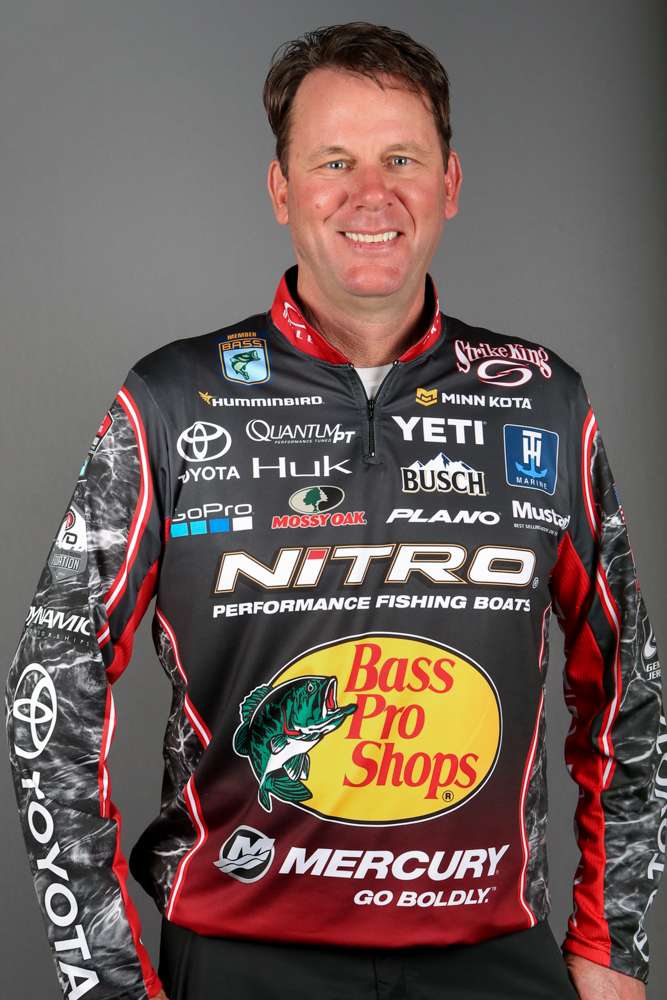
It’s been a busy fall for me with sponsor obligations, filming commercials and TV shows since the Elite season ended.
As we move into winter, I will focus on last year’s season, what I could have done better and what needs improvement for next year.
Every year is different. The 2018 season presents new challenges with visits to new lakes and at different times of the year. And, with the new no-information rule, we’ll have to put more emphasis on preparation and organization to maximize our time during each practice and the tournament.
My 2017 was actually a pretty good year, but it could have been much better. I won in New York and had a second-place in Mississippi and a few other good finishes. I put myself in position to win three times this year and that’s hard to do against this tough group of Elite anglers.
However, the bad tournaments really frustrated me, but I will learn from them.
I had solid patterns at Cherokee and Sam Rayburn, but missed or lost some fish and barely missed the cut. Losing fish is part of the game, but it can be very costly in today’s Elite completion.
A lot of guys focus on the what-ifs, the techniques or the obvious things, but it’s hard for some to be brutally honest about the fact you just made poor choices.
And that’s the key to success. You have to manage your risks. It’s easy to say you swing for the fences to catch a giant bag, but sometimes that isn’t wise. You have to make the most of tough tournaments to maximize your points in Angler of Year or to qualify for the Bassmaster Classic. There is no easy way in.
Look how tight the point race was for the Classic cut. One lost fish during a season can make the difference in 10 to 15 places in the tournament standings, and that’s a lot of points toward the end of the year.
Three of my tournaments frustrate me the most because of my overall performance following a practice.
At Rayburn and Champlain I had really tough first days; I found the right patterns for my style and the conditions but didn’t execute when it came time to put key fish in the boat.
I work hard on every aspect of my tackle to make sure I have the right rod, line, lures and hooks as well as how I play a fish to maximize my opportunity. One small error can cost you.
For example, at Champlain I didn’t switch to a flipping jig in one spot because I didn’t want to take time to change. As luck would have it, I hooked a 6-pound largemouth that first day and lost it at the boat. That would have been a huge upgrade, especially on a lake where everyone was catching 3 and 4 pound bass.
But it was my fault for using the wrong jig in that situation. I knew better.
At Okeechobee, I had a solid finish despite struggling the first day. I came back strong when I found an area with the winning fish, but I wasn’t able to execute.
The reason? It required punching through heavy mats with a heavy weight on braided line, a technique in which I have limited experience to practice here in Michigan. Since then, I’ve talked to fellow pro Greg Hackney, who shared with me some of the intricacies of the technique. It’s an area I plan to improve in case confronted with that again.
A poor finish on my home lake of Lake St. Clair was another matter. A challenge most veterans face is blending their experience on a lake and being open minded. The guys who did well hunkered down in one area and grinded it out while I was running around fishing too many different spots.
It’s never easy on the Bassmaster tour and that’s why they call it the Elites. But if you want to have a good year in any tournament circuit, you have to know your strengths, work on weaknesses and make adjustments in the future to avoid those lapses that can be so critical when fishing against the best of the best.
And like I say, it’s all about the attitude.
Kevin VanDam’s column appears weekly on Bassmaster.com. You can also find him on Facebook, Twitter and Instagram.

